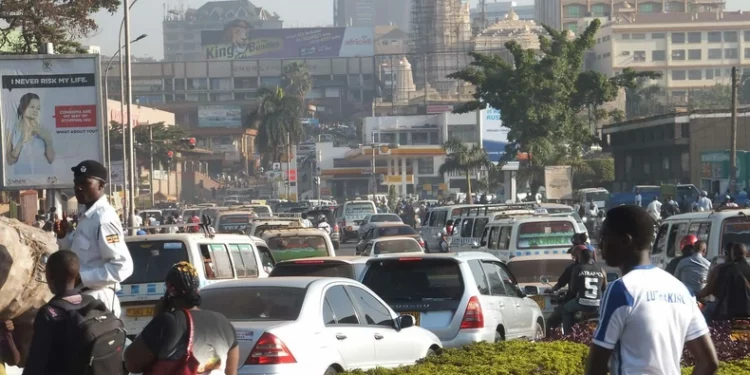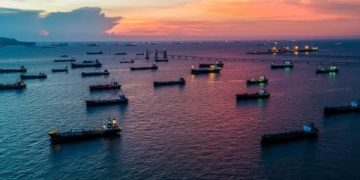Africa can’t afford another lost decade — what has gone wrong?
The opulent Palazzo Madama in Rome plays host this week to more than 70 African heads of state, senior government officials and representatives of the African Union and European Union to discuss something of shared importance for the two continents on either side of the Mediterranean: the future of Africa.
While easily derided as yet another talking shop in a European capital cut off from the reality of the challenges faced daily by Africans, it could not come at a more critical moment for the continent.
The series of coups plaguing sub-Saharan Africa — at least nine attempts in three years — plus a continent-wide political and economic malaise have prompted some soul-searching.
Across Africa, 22 countries — including major economies such as South Africa, Senegal and Ghana — are supposed to hold elections this year, a record. Worryingly, this year’s elections are likely to further reveal African voters’ deepening dissatisfaction with democracy. Afrobarometer surveys show that more Africans are today dissatisfied with democracy than at any time since 1999.
It’s a depressing state of affairs. Not long ago, the continent was the poster child for fast-growing emerging markets, with The Economist declaring in 2011 “Africa Rising” on its cover. What has gone wrong?
Fundamentally, the instability and dissatisfaction stem from the reversal in economic fortunes that most countries on the continent have experienced in the past 10 years. Sub-Saharan Africa’s GDP per capita peaked in 2014 at $1,936 and has since fallen by more than 10% to about $1,700 this year. In the same period, global GDP per capita has risen by nearly 15%.
Negative factors
Several factors have led to this slowdown. First, the Covid pandemic hit Africa disproportionately hard. Without any fiscal breathing room, African countries could not unleash the types of lavish support enjoyed by rich Western countries. Commodity and tourism-based economies collapsed.
Second, there has been a crushing funding squeeze. Africa is, by far, the region worst hit by rising US interest rates. Across the continent, borrowing costs have risen to unaffordable levels. African finance ministers are having to make impossible choices between paying the salaries of civil servants, keeping schools and hospitals open or compensating foreign investors. People are fed up with governments failing to improve conditions.
The drought of hard currency African bond issuance shows the disproportionate impact that higher US interest rates are having on the world’s poorest continent, as surging borrowing costs force African governments to tighten belts, restructure debts or seek alternative funding.
Kenya’s decision to cancel its Eurobond issuance in 2023 meant that it was the first year since 2009, amid the financial crisis, without a single international bond offering from a nation in sub-Saharan Africa. Furthermore, Chinese loans and direct foreign investment are drying up.
Sovereign debt crisis
At the World Economic Forum in Davos this month, Nonkululeko Nyembezi, the chairperson of the continent’s biggest bank by assets — Standard Bank — said that a sovereign debt crisis was the most critical problem facing Africa right now.
Ethiopia became the latest African country to default on its debt after it failed to make an interest payment in December, joining a league of non-paying nations that includes Zambia and Ghana. According to the International Monetary Fund, more than half of the low-income countries in the region are now assessed to be at a high risk of or already in debt distress.
Finally, there has been an overreliance of African countries on commodity exports, flattering their growth statistics during the commodity boom. This is not only risky, as eventually commodity booms give way to busts, but leads to imbalanced economies suffering from “Dutch Disease”, with limited linkages between the enclave sectors of resource extraction and meaningful, broad-based employment. The past two years of lower oil, copper, diamond and platinum prices have hurt.
Stagnating personal income
The risk of another decade of stagnating personal income is real, and it would be a dreadful outcome for the world’s poorest continent. Africa is particularly vulnerable because such a large share of its population is already living below the poverty threshold, and its emerging working and middle classes are more fragile than elsewhere, floating between making ends meet and impoverishment.
As finance minister of Zimbabwe Mthuli Ncube says, middle-class status in Africa is not one-way but rather a “revolving door”. For many, that door continues to turn, pushing families back into poverty.
With the world’s attention elsewhere, Africa needs to get back on the agenda. Hopefully, this week’s summit in Rome will aid that. Italian Prime Minister Giorgia Meloni has staked much on the success of her €5.5-billion “Mattei Plan” of Italian investment into Africa to drive economic growth and, consequentially, slow the stream of immigrants to Europe.
As she said at the opening, “The objective is to discuss our shared vision of development for Africa… It is a new approach: not predatory, not paternalistic, but not charitable either. Rather, the idea is to work together as equals, to grow together.”
Whether much is forthcoming from such lofty rhetoric remains to be seen. But whatever happens, Africa needs investment, structural reforms and moreover — growth. Its people simply cannot afford the economic and political consequences of another lost decade.








